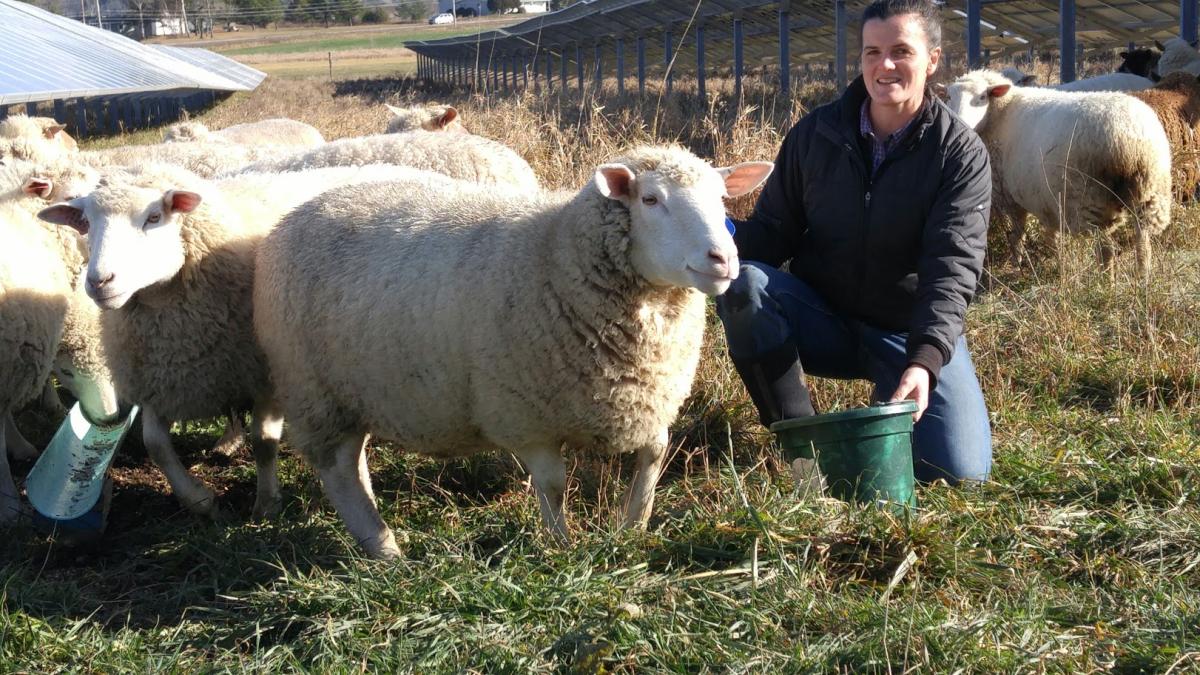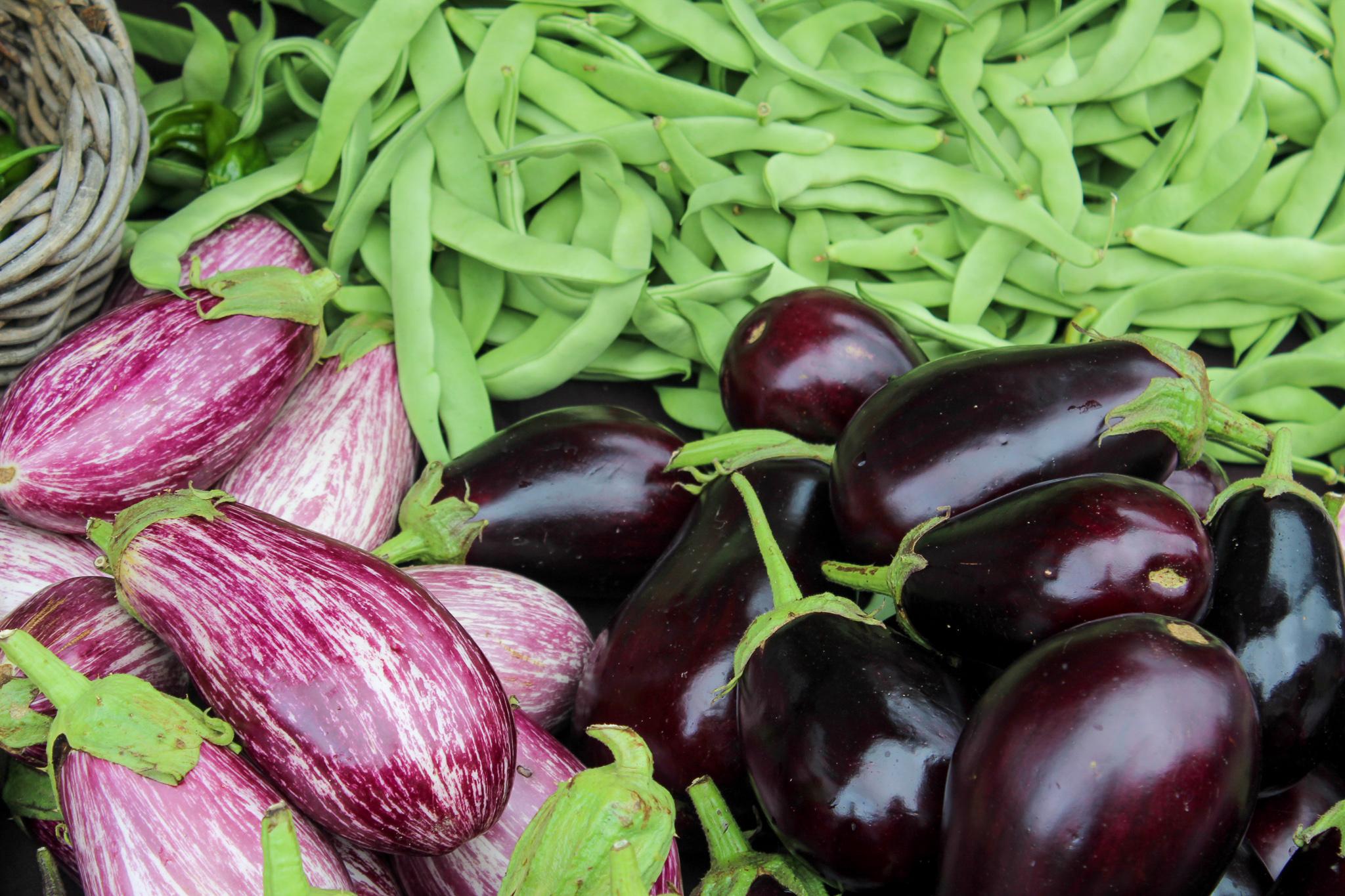On Monday, November 28th, the UVM Extension Center for Sustainable Agriculture celebrated the launch of a new research project to assess the feasibility of using wool from Vermont sheep as an insulation material, and for other building and household products. The launch event was hosted by collaborator Open View Farm located in New Haven, Vermont and home to a flock of Tunis Dorset ewes. This exploration of a value-added product hopes to provide sheep farmers with new sources of revenue, and to add to the availability of environmentally friendly products for the building trade. The project has been made possible by a Value-Added Producer Grant from USDA Rural Development and support from the Vermont Agency of Agriculture, Food and Markets.
From 2007 to 2012 the number of sheep farms in Vermont increased 27%, and the number of sheep increased by 35%. However, for a variety of reasons, many sheep farmers have struggled to turn a profit. At the same time, growing interest in natural non-toxic materials as insulation for buildings could provide a market for raw wool. Insulation made from wool is already produced in Europe and in locations in the western United States.
“The plan is to identify possible wins all around – for consumers interested in using a locally produced item to make their houses more comfortable and energy-efficient, for environmentally conscious builders, and, especially, for sheep farmers in Vermont and the region. This could be an answer to the wool collected from Vermont’s sheep which is currently lacking such a value-added market channel,” says Suzy Hodgson of the Center for Sustainable Agriculture.
 Kimberly Hagen, grazing specialist at the Center for Sustainable Agriculture, says that shearing sheep regularly is part of maintaining a healthy flock but much of the wool collected does not have a ready market. This additional revenue stream for sheep farmers could provide a more viable business for them.
Kimberly Hagen, grazing specialist at the Center for Sustainable Agriculture, says that shearing sheep regularly is part of maintaining a healthy flock but much of the wool collected does not have a ready market. This additional revenue stream for sheep farmers could provide a more viable business for them.
“Anytime the Agency of Agriculture can help farmers find a market for a low-value product, it’s a good day,” said Alex DePillis of the Vermont Agency of Agriculture, Food and Markets. “In this case, the minimally processed wool would become insulation that keeps Vermonters warm in their homes. We look forward to working collaboratively with farmers, builders, and organizations that serve the building industry, such as Efficiency Vermont and the Vermont Technical College, to create strategies for getting wool-based insulation to market.”
The research project team includes Kimberly Hagen and Suzy Hodgson, UVM Extension Center for Sustainable Agriculture; Anna Freund of Open View Farm; Alex DePillis, Vermont Agency of Agriculture, Food and Markets; Deb and Ed Bratton, Vermont Fiber Mill; David Ritchie, Green Mountain Spinnery; Alex Wilson, Building Green; Andrea Murray, Vermont Integrated Architecture; Ben Graham, New Frameworks; and Dave Martin, Settlement Farm.
The work will culminate in a feasibility report, which will be made available to the public on the UVM Center for Sustainable Agriculture site at http://www.uvm.edu/~susagctr/?Page=whatwedo/projectsresearch/wool_project.html.
For more information about this wool research project, please contact Kimberly Hagen, 802-522-6729, [email protected].
About UVM Extension Center for Sustainable Agriculture
Established in 1994, the UVM Extension Center for Sustainable Agriculture provides timely information to Vermont communities and the UVM campus. Center staff conduct innovative research, support the development of promising practices, cultivates partnership, and inform policy to advance sustainable food and farming systems
University of Vermont Extension, and U.S. Department of Agriculture, cooperating, offer education and employment to everyone without regard to race, color, national origin, gender, religion, age, disability, political beliefs, sexual orientation, and marital or familial status. This institution is an equal opportunity provider.

